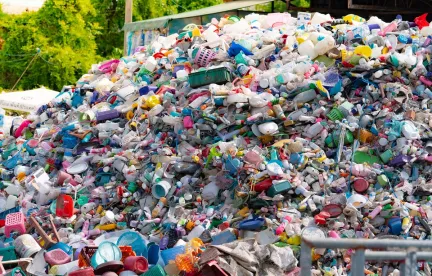As the International Summit on Plastic Pollution gets underway, I'll be sharing some of the conclusions reached by a team of French and American lawyers regarding the very different responses of France and the United States to the scourge of plastic waste in our planet’s waters. A paper presenting those conclusions is being presented at the Summit. I played a small role in it.
One significant difference is that the European Union, including France, has already banned many single-use plastic products and imposed significant restrictions on plastic production including specifications for degradable plastic.
The French Law against Waste for a Circular Economy (AGEC Law) imposes new financial obligations on manufacturers of plastic items, new bans on single-use plastics, and new enforcement tools. Among the products banned by the AGEC Law are many products containing microplastics, polystyrene fast food containers, plastic fast food cutlery used on site, plastic fast food toys, plastic packaging for mailings, plastic water bottles at public events, and certain non-recyclable plastic packaging.
It stands to reason that less single use plastic means less plastic in our oceans.
Similar proposals have been made in Congress but none have become Federal law. I'll have more to say about our response to this global problem in the United States next time.
"The Global Council for Science and Environment (GCSE), the Office for Science and Technology of the Embassy of France in the United States, and Long Island University invite you to join us for an international summit focused on the continued effort and opportunity for research institutions and universities to collaborate and support the long term data, research initiatives, actionable policy sets and future projects that leverage the value of sharing transboundary knowledge. This summit will feature distinguished scholars and leaders committed to curbing plastic pollution on local, national and global levels."




 />i
/>i

